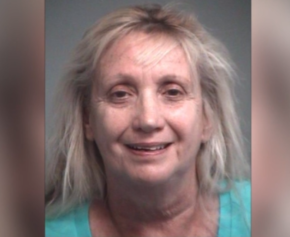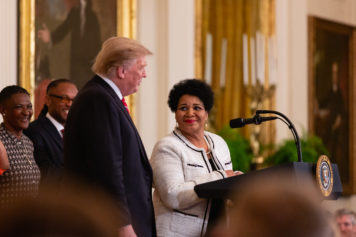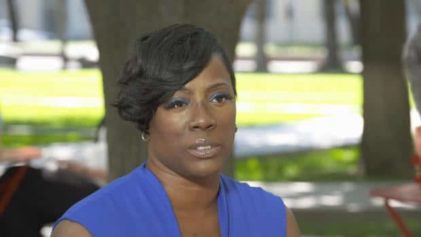While the public has been focused on Republican efforts to restrict voting by implementing voter ID laws, a stealth campaign has been ongoing in 27 states to remove millions of people — particularly Blacks, Hispanics and Asians — from the rolls by claiming they are double voters who are committing fraud by voting in more than one state at a time, according to a nationwide investigation by Al Jazeera America.
The purging efforts are centered around a program called Interstate Crosscheck, which has generated a list of nearly 7 million names of voters whose names also appear in another state — an indication, according to state officials, that these voters are committing voter fraud by voting in more than one state. Officials are trying to use the Crosscheck list to stop millions from voting in the midterm elections, which would be certain to tilt the results in favor of the Republican Party.
Already more than 41,000 voters have been removed from the rolls in Virginia using the Crosscheck list.
In many other states, millions of voters may turn up to the polls next week to find that they have been flagged as a potential fraud suspect.
But after officials in three states — Georgia, Virginia and Washington — turned their Crosscheck lists over to Al Jazeera America, representing more than 2 million names, the publication was able to determine just how ridiculously inadequate the name-matching system used by Interstate Crosscheck is.
Crosscheck compiled its lists by matching names from roughly 110 million voter records from the 27 participating states, a process Al Jazeera America said has been spearheaded by Kansas’ controversial Republican secretary of state, Kris Kobach, who has made a name for himself as a crusader against voter fraud. Of the 27 participating states, 20 have Republican secretaries of state, while seven are Democrats. The participating states are primarily concentrated in the South and Midwest.
But the Al Jazeera investigation showed middle names are commonly mismatched, suffix discrepancies are ignored, birth dates weren’t taken into account and the process deliberately ignores Social Security mismatches — in the few instances when the numbers are even collected.
In advising county election officials, Crosscheck’s instructions say, “Social Security numbers are included for verification; the numbers might or might not match.”
So all it really takes to become suspected of voter fraud — and potentially have your name scrubbed from the rolls so that you can’t vote — is to share a first and last name with a voter in another state.
The three states’ lists analyzed by Al Jazeera America are heavily weighted with names such as Jackson, Garcia, Patel and Kim — names common among African-Americans, Hispanics and Asian-Americans, groups who typically vote Democratic.
Al Jazeera found that 1 in 7 African-Americans in those 27 states are listed as under suspicion of having voted twice, 1 in 8 Asian-Americans and 1 in 8 Hispanic voters. For white voters, the number is 1 in 11.
“It’s Jim Crow all over again,” the Rev. Joseph Lowery, 93, co-founder of the Southern Christian Leadership Conference with Martin Luther King Jr. Lowery, told Al Jazeera. “I think [the Republicans] would use anything they can find. Their desperation is rising.”
In its story, Al Jazeera listed typical mismatches:
- Kevin Antonio Hayes of Durham, North Carolina, is a match for a man who voted in Alexandria, Virginia, as Kevin Thomas Hayes.
- John Paul Williams of Alexandria is supposedly the same man as John R. Williams of Atlanta, Georgia.
- Robert Dewey Cox of Marietta, Georgia, is matched with Robert Glen Cox of Springfield, Virginia.
Al Jazeera America actually visited these people and was told repeatedly that the matches were erroneous.
Jo Cox, wife of suspected double voter Robert Glen Cox of Virginia, told Al Jazeera that Cox “is 85 years old and handicapped. He wasn’t in Georgia. Never voted there,” she says.
Al Jazeera found that 23 percent of the names — nearly 1.6 million of them — lack matching middle names. In addition, “Jr.” and “Sr.” are ignored, which could potentially disenfranchise two generations in the same family. Of those suspected of voting twice in the 2012 presidential election, 27 percent were listed as “inactive” voters, meaning that almost 1.9 million may not even have voted once in that race, according to Crosscheck’s own records.
“It appears that Crosscheck does have inherent bias to over-selecting for potential scrutiny and purging voters from Asian, Hispanic and Black ethnic groups,” Mark Swedlund, a specialist in list analytics, told Al Jazeera after reviewing the lists. “In fact, the matching methodology, which presumes people in other states with the same name are matches, will always over-select from groups of people with common surnames.”
Swedlund says the Crosscheck method is “ludicrous, just crazy.”
“It’s biased, I think, both in form and intent,” says Rep. Stacey Abrams, leader of the Democrats in the Georgia state legislature, who already joined with the NAACP to sue Georgia’s Republican secretary of state, Brian Kemp, on behalf of 56,001 voters who filled out registration forms but whose names haven’t been added to the voter rolls. “But more concerning to me is the fact this is being done stealthfully. … We have never had this information presented to us.”
After reviewing Al Jazeera’s findings, civil rights attorney Helen Ho said, “I think the Asian community would be shocked to see that we are the most criminally suspect of the bunch. Most of us are naturalized citizens. Most of us have to take the citizenship exam. So we know the Constitution and the rules much better than most Americans … So the question is, ‘Why would a disproportionate number of Asian-Americans risk breaking the law to vote twice?’ ”
“I think anyone that actually paid some mind to the way Asian-American names work, our last names and first names in common usage, would know that there’d be a disproportionate impact,” said Sang Park, an elderly volunteer who works with Ho at her legal advocacy center, Asian Americans Advancing Justice-Atlanta, based in Doraville. “I’m sure the Latino community’s the same.”
In fact, according to Al Jazeera America, a sixth of all Asian-Americans share just 30 surnames and 50 percent of minorities share common last names, versus 30 percent of whites.
Ho said she understands why the Republicans would try to target Asian-Americans: 73 percent of the Asian-American community in the U.S. voted for Obama in 2012.


